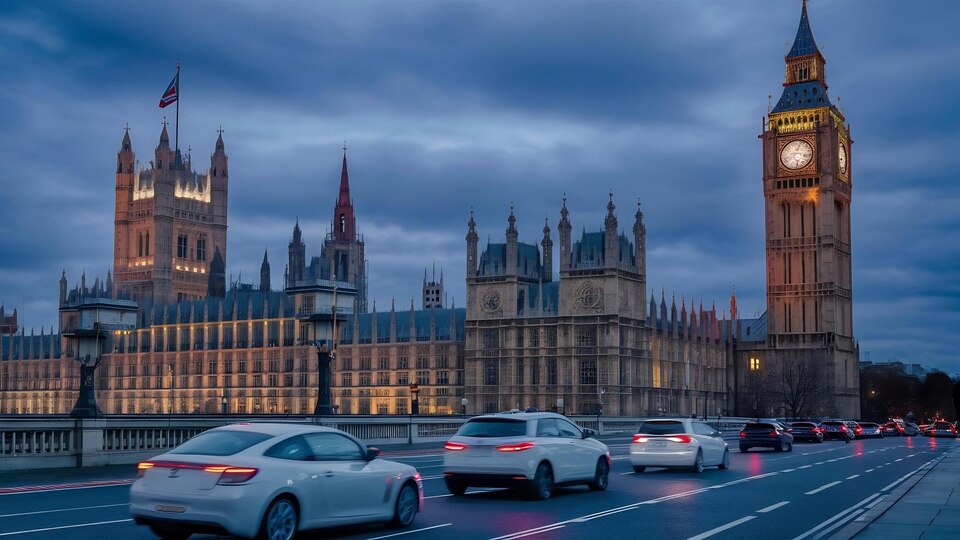In a significant legal development, the British Prime Minister Rishi Sunak’s policy to elevate the minimum income requirement (MIR) for family visas is now under scrutiny in the high court. This policy, which now mandates applicants to earn £29,000 annually to reunite with their loved ones in the UK, faces allegations of potentially separating children from their parents and exhibiting discriminatory tendencies towards women and minorities, as reported by The Guardian. UK Family Visa Minimum Income Requirement
The adjustment in the minimum income requirement was announced by the Rishi Sunak administration last year, forming part of a gradual strategy to align the family visa salary threshold with that of the Skilled Worker visa. The implementation of this change took effect on April 11.
According to the stipulated salary thresholds by the UK government, applicants must now demonstrate a minimum annual income of £29,000 (equivalent to approximately Rs 30,95,590 as per the current exchange rate) to qualify for the visa. This reflects a substantial 55% increase from the previous threshold of £18,600 (roughly Rs 19,85,601). UK Family Visa Minimum Income Requirement
The Home Office has defended this measure as the concluding step in Prime Minister Sunak’s efforts to curtail legal migration and ensure that incoming individuals do not pose a financial burden on the taxpayer.
Home Secretary James Cleverly remarked, “We have reached a tipping point with mass migration. There is no simple solution or easy decision which cuts numbers to levels acceptable to the British people.”
In response to these developments, Reunite Families UK (RFUK), a non-profit organization dedicated to assisting families with UK spouse visas and raising awareness about the implications of immigration rules, has filed for a judicial review. They argue that the measure violates the UN Convention on the Rights of the Child, as reported by The Guardian. Additionally, the group questions whether the decision-making process aligned with official Whitehall advice.

Criticism and Debate Over UK Immigration Policy
The increase in the minimum income requirement threshold introduced by Home Secretary James Cleverly has faced criticism for its potential adverse impacts on women, ethnic minorities, and young individuals, with RFUK asserting that it breaches the Equality Act.
The Equality Act 2010 serves as a legal safeguard against workplace and societal discrimination.
This alteration comes amid a debate between Sunak and Keir Starmer regarding migration levels, with both parties vowing to implement stricter measures.
The surge in the minimum income requirement, implemented in April, has resulted in family separations, as many UK residents find themselves unable to meet the new income threshold required to sponsor foreign spouses. Further increases are anticipated, with the minimum income requirement (MIR) slated to rise to £38,700 (approximately Rs 41,31,486) next year.
Court documents will argue that the policy contravenes the home secretary’s obligations under Article 3 of the UN Convention on the Rights of the Child, potentially leading to the separation of children from their parents abroad.
RFUK’s Caroline Coombs expressed the community’s dismay at the abrupt changes, particularly amidst the ongoing cost-of-living crisis.
“The increases came as a complete surprise to the community we represent – and at a time when people all over the UK have been struggling with a relentless cost-of-living crisis,” Coombs stated, as quoted by The Guardian.
“While they have been working hard to earn and save enough to sponsor their partner, the government has punished them once again, and for many, their dream of a family life together here has been shattered,” Coombs added.
Leigh Day partner Tessa Gregory, representing RFUK, criticized the government’s decision-making process.
“Our client is appalled that a decision of such import appears to have been taken by the home secretary in such a cavalier manner: without proper analysis, and in breach of critical public law duties such as assessing the impact of the decision on protected groups,” Day commented, as reported by The Guardian.
Despite Reduced Immigration, Sunak Pushes MIR Increase
Sunak announced the rise in the minimum income requirement (MIR) in December, responding to pressure from the Conservative Party’s right wing over escalating net migration.
Recent data from the Office for National Statistics (ONS) indicates a 10% decline in net migration to the UK in 2023, down to 685,000 from the peak of 764,000 in 2022.
The Home Office declined to comment, citing purdah (pre-election period) rules before the general election, while the Conservative Party defended the policy, arguing that it ensures sponsors can financially support their families.
The Labour Party has signaled broad support for the changes.
A family visa enables a British citizen or settled resident to bring a foreign partner or spouse, along with potential children, to reside in the UK. The MIR was previously set at £18,600 but was raised to £29,000 in April, with further increases planned to £38,700.
Disclaimer: This blog post is intended for informational purposes only and reflects the latest updates at the time of writing. The content presented here is not a substitute for professional advice. Readers are encouraged to verify information from reliable sources and consult relevant authorities or experts for specific guidance.
Source: UK’s msn.com
Your Comprehensive Guide to Renewing Your Passport Online
Also read:












